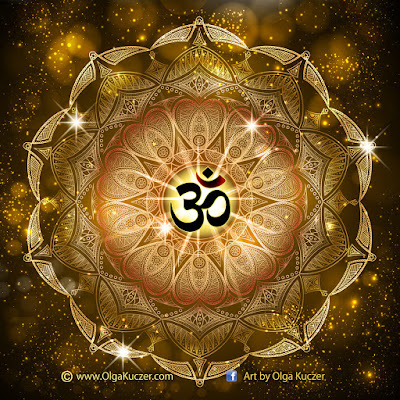Out of my Mind and Blissful
How often have we heard the phrase, "are you out of your mind?"
Puzzling as this may sound, there is considerable depth and meaning in the phrase.
We humans exist in three dimensions.
First, like all other creatures, the body, which is the physical aspect of our nature.
Second, the mind, which provides us with perception, and reasoning. This intellectual capacity all humans possess but in varying degrees.
Third, the soul, which provides us consciousness, the spiritual dimension. This all humans inherently possess but only evolved souls can experience.
The mind drives the body and all our actions.
Be it joy, grief, anger, lust, fear, etc. everything we sense, believe, and act upon is because of the mind.
The prevailing global view is significantly dominated by Judeo-Christian thought. It describes a person primarily as a body that possesses a mind and a soul, with one finite life. At the end of the lifetime the person goes either to heaven or hell. Hence the preoccupation with the finite, and material world, the known and the knowable. The highest level of existence being of the mind.
Traditional Indian thought defines a person as an immortal soul which migrates from one body to another after each lifetime, hence the preoccupation with not only the known and the knowable, but also the infinite, the unknown and the unknowable. Here, the highest level of existence being of the soul. While the soul provides consciousness, the driving force is the mind. That is why Man is referred to as 'Manav' or 'Manas' meaning the being with a mind.
The mind is a logical, rational thing, and considered essential for individuals to survive, coexist and also conform to the expectations of society.
Sometimes people break free from the mind. In a sense they step out of their mind. They then begin to behave completely different, irrationally and illogically. Those who are 'out of their minds' live in the moment, seemingly free from cares and unhappiness. It is extremely difficult for society to accept such beings, who they consider as 'mad'. Fearful that such behaviour is dangerous, and contagious most societies forcibly lock up and destroy 'the mad'.
Unlike in the West, Indians have over the millennia learnt and experienced that there are not one but two possibilities of stepping out of the mind. When one falls below the mind then it's called 'madness' and when one rises above the mind it's called 'enlightenment'.
The mind is a logical, rational thing, and considered essential for individuals to survive, coexist and also conform to the expectations of society.
Sometimes people break free from the mind. In a sense they step out of their mind. They then begin to behave completely different, irrationally and illogically. Those who are 'out of their minds' live in the moment, seemingly free from cares and unhappiness. It is extremely difficult for society to accept such beings, who they consider as 'mad'. Fearful that such behaviour is dangerous, and contagious most societies forcibly lock up and destroy 'the mad'.
Unlike in the West, Indians have over the millennia learnt and experienced that there are not one but two possibilities of stepping out of the mind. When one falls below the mind then it's called 'madness' and when one rises above the mind it's called 'enlightenment'.
In India, a mad person is rarely harmed and no enlightened person overlooked or ignored. Who knows if he or she is enlightened or mad? Society grants the benefit of doubt to the person who is out of his or her mind. Therefore, people who are seen to be out of their minds are often treated with deference.
What is the difference?
The mad person is clueless and unaware but not unhappy.Whilst madness is an accident and caused by random circumstances, enlightenment is the result of conscious and deliberate effort.The enlightened person completely aware of the mind, blissfully able to merely bear witness to all the mind entertains, experiences and does. It is like observing a child and its antics from a distance yet never participating.
The aware person rises above the domination and control of the mind and all associated negativities. Greed disappears and compassion blooms, wanton sex is replaced by love, anger is extinguished by forbearance even amusement, enmity is replaced by friendliness and ego is replaced by humility. Unfettered by the mind the enlightened person is pure soul.
The paths to enlightenment are many, but the journey's direction is always one, and it is inwards. The blessings and guidance of a Guru (a master) is essential for achievement of enlightenment.
There are many Gurus existing, and one will appear in our lives to guide us only when we are ready for our awakening. In the meanwhile we should however remain wary of numerous frauds and cheats masquerading as Gurus preying on our desperation.
How to know if a Guru is genuine? This is the subject of a future article.

Comments
Post a Comment